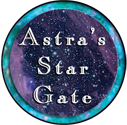



Modern investigations have taught us a lot about stars. Although, some stars are loners, stars are like people, they love to associate. Some find life-long companions, like a happy couple tend to stay off on their own. Others remain in their family groups, and are multiple star systems with many members. Still others are more popular and love to hang out in larger, looser associations, called open or galactic clusters. Galactic clusters of stars often contain a dozen to a hundred members. Often gravitation attractions between the stars in groups like this will keep them hanging together, forming the spiral arms of galaxies. Still other stars gather in bunches of thousands, orbit at a distance, but still hang on to the center of galaxies. Tightly packed bunches of stars, these are generally distant, spherical and glow with a yellow hue. These are called, globular clusters. A larger association of stars in a spherical pattern is called an elliptical galaxy. Indeed it is stars that make up the very galaxy that we live in.
The star associations group must be observed with an instrument. Standard abbreviations for constellations and objects are used ( i.e., OC = Open Cluster.) Coordinates for these objects will be published at a later date. If anything really confuses you, use Astra'a contact page to ask me directly.
Astra has chosen a sampling of some of the star associations observations you can make. Below the list is an observing form that you can use to track your own observations. To best enjoy the challenge, download the pdf document at Astra's: CELESTIAL OBSERVING CHALLENGE. In addition to observing forms, there is also a certificate of completion for those using the program for their youth group or astronomy club.
Astra's Celestial Challenge - Links to the pages for all the groups
| GLOBULAR CLUSTERS | PLANETARY NEBULA |
| M 10 - OPH | M-27 - VUL - The Dumbbell |
| M 12 - OPH | M- 57 - LYR - The Ring |
| M 13 - HER |
|
| M 53 - COM | DOUBLE STARS |
| NGC 6449 - SGR | Gamma Arietis |
| Alpha Libra | |
| OPEN CLUSTERS | Epsilon Lyrae |
| M 11 - SCT | |
| M 35 - GEM | |
| M 38 - AUR | EXTRA CREDIT |
| .M 103 - CAS | M 97 - PN - The Owl |
| NGC 1980 - ORI |
ASTRA'S STARGATE OBSERVING CHALLENGE |
||
| Observation Report Form | ||
| NAME________________________ | ||
| Instrument______________________ | ||
| OBJECT | DATE | NOTES |
| M 10 - GC - OPH | _______ | _______________________________________________ |
| M 12 - GC - OPH | _______ | _______________________________________________ |
| M 13 - GC - HER | _______ | _______________________________________________ |
| M 53 - GC - COM | _______ | _______________________________________________ |
| NGC 6449- GC - SGR | _______ | _______________________________________________ |
| _______ | _______________________________________________ | |
M 11 - OC - SCT |
_______ | _______________________________________________ |
| M 35 - OC - GEM | _______ | _______________________________________________ |
| M 38 - OC - AUR | ||
| M 103 - OC - CAS |
_______ | ______________________________________________ |
| NGC 1980 - OC - ORI | _______ | ______________________________________________ |
| _______ | ______________________________________________ | |
| M 27 - PN - VUL | _______ | ______________________________________________ |
| M 57 - PN - LYR | _______ | ______________________________________________ |
| Gamma Arietis DS | _______ | ______________________________________________ |
| Alpha Libra DS | ||
| Epsilon Lyra DS | _______ | ______________________________________________ |
| EXTRA CREDIT | _______ | ______________________________________________ |
| M 97 - PN - The Owl | _______ | ______________________________________________ |
Last Modified 01/24/2023